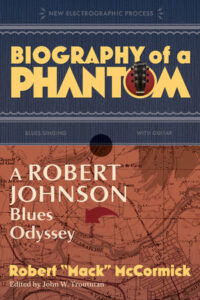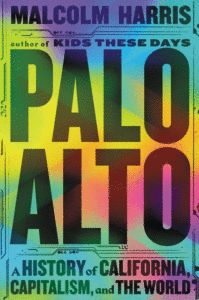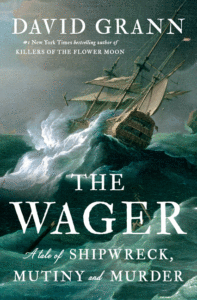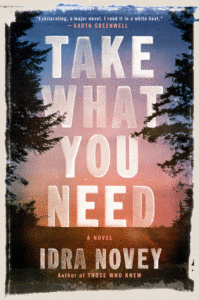
5 Book Reviews You Need to Read This Week
“The truth may sometimes hurt, but the lies are in bed with collective death.”
This week’s medley of magnificent reviews includes Jonathan Lethem on Malcolm Harris’ Palo Alto, Chris Vognar on David Grann’s The Wager, Dwight Garner on Robert “Mack” McCormick’s Biography of a Phantom, Katherine J. Wu on Jonathan Kennedy’s Pathogenesis, and Kristen Martin on Idra Novey’s Take What You Need.
Brought to you by Book Marks, Lit Hub’s “Rotten Tomatoes for books.”
*
“Harris has dug deep into the task. The scheme here is history as microcosm: Palo Alto works outward from scrupulous specifics to an epic panoramic recasting of our whole dire situation. The book should be of urgent interest to anyone living inside its ambit—that being, according to its subtitle, California, capitalism, and the world … Harris is terrific at character sketches … Harris animates a frieze of predominantly deplorable white men of power, influence, and ego in his detailed prose. But at the same time, he has a larger vision, one in keeping with his Marxist analytics: A system like capitalism finds the villains it needs …
As the mosaic that Harris builds in Palo Alto accumulates its pieces, readers jonesing for dirt on Peter Thiel, Jeff Bezos, and Elizabeth Holmes will not be disappointed. They will, however, be made to sit on their hands for a while. Not until page 439 does the curtain rise on a more contemporary parade of deplorables … Readers will relish Palo Alto for its scope and precision, for its pugnaciousness, and for its sardonic amazement at an emperor who couldn’t be strolling down the avenue any nakeder. There’s a brute glee in Harris’s version of historical materialism; even the book’s title eschews metaphor and abstraction. Harris has done the hard work, and he has done it in a cause: to urge us to awake from our capitalist-technological inertial dream state. The truth may sometimes hurt, but the lies are in bed with collective death.”
–Jonathan Lethem on Malcolm Harris’ Palo Alto: A History of California, Capitalism, and the World (The Nation)
“David Grann begins his propulsive, finely detailed seafaring saga The Wager with a caveat of sorts: ‘I must confess that I did not witness the ship strike the rocks or the crew tie up the captain. Nor did I see firsthand the acts of deceit and murder.’ But you would scarcely know it from reading these pages. Grann…has a rare gift for applying the rigors of narrative nonfiction to the stuff of myth and legend …
Through tireless research and storytelling guile, he places the reader amongst a tempestuous collection of 18th-century British seamen, at war with the elements and, more fatefully, each other. As you read you feel the sting of freezing saltwater against the face, and the desperate pangs of hunger. This is a ripping yarn disguised as an acute study of group psychology, or perhaps the other way around … Grann guides us through this process, step by step, storm by storm, man by man, in prose that the writers he references, including Herman Melville and Joseph Conrad, would appreciate. The book invites landlubbers in with vivid descriptions of life at sea, peppered with explanations of phrases and idioms given us by that life.”
–Chris Vognar on David Grann’s The Wager: A Tale of Shipwreck, Mutiny and Murder (The Boston Globe)

“Like a carton of cigarettes, Biography of a Phantom comes wrapped in advisories. Whether because of mental illness or moral turpitude, McCormick did bad things, it is explained. He’s the guest of dishonor at his own banquet. He kept enemies lists. He threatened people with physical violence. He lied about nonexistent contracts. He forged documents to throw others off the trail. He treated Johnson’s survivors poorly. He held up reissues of Johnson’s songs, which influenced dozens of rock musicians and permanently altered our sense of American music and culture. Troutman situates him within the ‘small group of white male enthusiasts’ who ‘assumed an extraordinarily outsized impact on national, even global conversations about Black music.’ Troutman considers the ways that ‘racism, greed and the instruments of white supremacy in the legal system and corporate structure’ play a role in the tangled stories of white scholars and Black musicians. No doubt all this is true, and these conversations matter.
The funny thing about Biography of a Phantom is, after you wade through the trigger warnings, how earnest and low-key and appealing McCormick’s manuscript is … This is a human and humane book, an insightful exploration of the biographer’s craft. McCormick gets tired and lonely. He sighs on his couch and gloomily watches daytime television. He’s perspicacious but also a bit hapless. He reminded me of the wised-up but melancholy narrators of Frederick Exley’s A Fan’s Notes and John Kennedy Toole’s A Confederacy of Dunces … McCormick’s book is no longer unseen, nor is it a masterpiece. But, reading it, you feel as though you’ve met a real writer, one who had a lot going for himself and let it all slip away.
–Dwight Garner on Robert “Mack” McCormick’s Biography of a Phantom (The New York Times)
“Three years after the outbreak of a devastating infectious disease with a staggering death toll, spending time with a book that vividly details the microbial richness of human history might not rank high on most people’s must-do lists. But those with enough of an epidemiological appetite to pick up Kennedy’s new book will be gratifyingly—if not necessarily cheerfully—rewarded with the knowledge that their read was at least well timed … Kennedy’s book isn’t meant as revisionism; the broad strokes of history remain intact.
But it gently sidelines humans—and, in doing so, humbles them … ennedy’s book manages to end on a somewhat hopeful note. Yes, our trajectory is defined by microbes. But it’s also influenced by our reactions to them—and our acknowledgment of their power. This current pandemic may be tilting toward a slow end. As much as we may want the crisis to disappear in the rearview, the coda of one outbreak is an ideal time to prepare for the next, inevitably on its way.”
–Katherine J. Wu on Jonathan Kennedy’s Pathogenesis: A History of the World in Eight Plagues (The Atlantic)
“This could be the start to a story about a family torn apart by Fox News, but Novey upends familiar platitudes on our country’s divisions in an odd novel about the ways that the people and places we love can become enigmas to us, and the ineffable impulse to make art … Part of what sets Take What You Need apart is that Novey is no tourist visiting Appalachia to gawk at its remaining residents … Though Sevlick and its reactionary politics initially seem the source of Leah’s and Jean’s silence, as the novel progresses, Novey delves past this more obvious conflict to mine deeper sources of estrangement …
At the heart of Leah and Jean’s story lies this inability of each woman to understand why one cannot leave and the other must. They both feel abandoned, left behind. ‘We don’t always get to find out what happens to people, or who they really are,’ Novey writes toward the end of Take What You Need. Grappling with the mysteries we present to one another, Novey pushes back against the fairy tales we’ve told ourselves about polarizing places like Appalachia, spinning a far more artful story.
–Kristen Martin on Idra Novey’s Take What You Need (The New Republic)
Book Marks
Visit Book Marks, Lit Hub's home for book reviews, at https://bookmarks.reviews/ or on social media at @bookmarksreads.
























